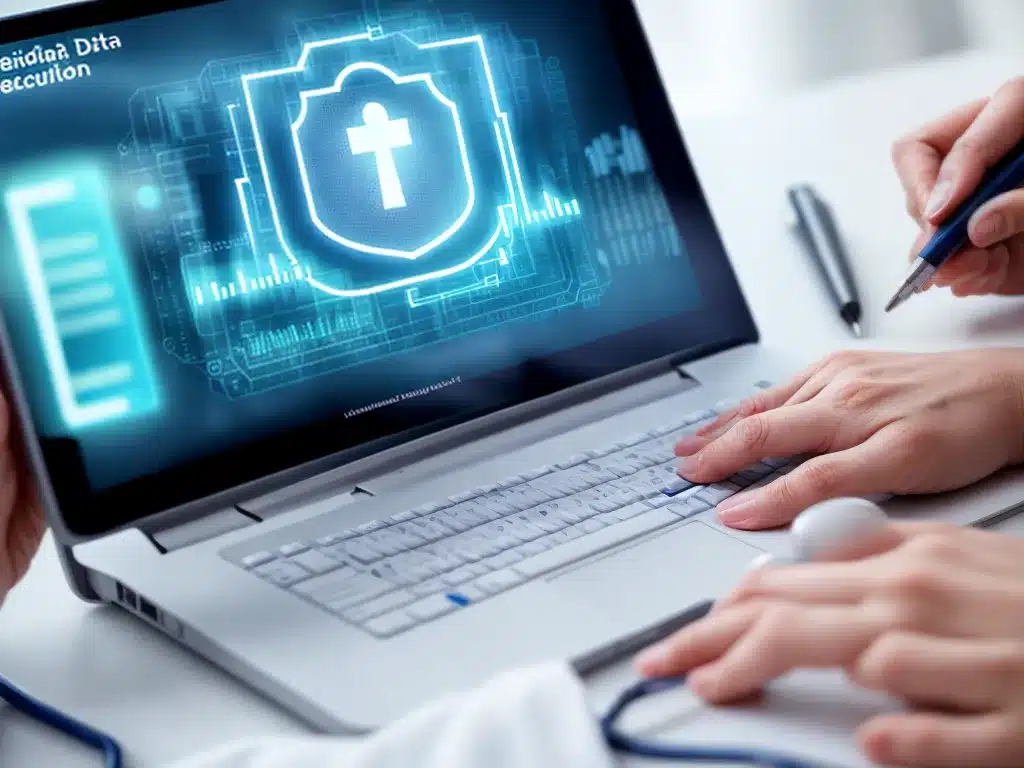Medical Data Security: Protecting Patient Health Information
Data security is essential in healthcare. As a medical professional, I must ensure patient data is kept private and secure. In this article, I will discuss the importance of medical data security and best practices to protect sensitive patient information.
Why Medical Data Security Matters
Medical data relates to a patient’s healthcare history, treatment, and personal information. It includes:
- Contact details – names, addresses, phone numbers
- Health records – symptoms, diagnoses, medications, test results
- Insurance information – policy details, billing, claims data
- Demographic data – age, gender, ethnicity, marital status
This data is highly sensitive. If compromised, it can violate a patient’s privacy and cause financial, emotional, or health damage. Medical identity theft is also a rising concern.
There are strict data protection laws like HIPAA in the United States. As a medical practitioner, I have an ethical and legal duty to keep patient data secure. Proper data security is essential for maintaining patient trust in the healthcare system.
Threats to Medical Data Security
Medical data faces security threats from both internal and external sources:
- Data breaches – external hacking of medical/insurance databases to steal patient information
- Unauthorized insider access – employees accessing data without permission
- Loss or theft of devices – loss of laptops, USB drives, etc containing patient data
- Phishing attacks – emails tricking staff to reveal usernames/passwords
- Ransomware – malware that encrypts data until ransom is paid
- Insider wrongdoing – staff deliberately stealing and selling patient data
These threats exploit vulnerabilities in medical data systems and human error. Without proper safeguards, patient’s sensitive health information is at risk.
Best Practices for Medical Data Security
Maintaining rigorous data security controls is essential to protect patients. Some key best practices include:
Administrative Safeguards
- Access control – allow data access on a strict need-to-know basis only
- Password policies – enforce strong passwords that are regularly updated
- Background checks – thoroughly vet staff before granting data access
- Security training – educate all staff on security protocols and best practices
- Policies enforcement – ensure data security policies are applied uniformly
Technical Safeguards
- Encryption – encrypt data in transit and at rest to prevent unauthorized access
- Firewalls – use network firewalls to prevent external intrusions
- Access logging – log staff data access to identify breaches
- Anti-malware software – install latest anti-virus and anti-malware tools
- Patching – promptly install security patches and system updates
Physical Safeguards
- Secure servers – store data on secure servers with limited physical access
- Locked storage – keep physical records in locked cabinets/rooms
- Access control – use ID cards/biometrics to limit data center access
- Security guards – post guards to monitor sensitive areas
My Commitment to Data Security
As a medical practitioner, I give patient health information security the utmost priority in my daily work. This includes:
- Only accessing patient data when needed for treatment purposes
- Using strong unique passwords and changing them regularly
- Completing all required data security and HIPAA training
- Securely disposing of any printed patient health records
- Using encryption when transmitting health data electronically
- Reporting any data security risks or breaches promptly
I strive to be vigilant and proactive on data security issues. Patients trust me with highly sensitive health information. Protecting that data is critical to delivering ethical, professional medical care and upholding patient rights. I will continue educating myself on medical data security best practices.
Conclusion
Patient health information is highly sensitive and must be appropriately secured. From administrative policies to technical controls and physical security, a multi-layered defense is essential. Medical practitioners like myself have an important responsibility to implement data security best practices that mitigate risks and protect patients’ personal data. With continuous training and vigilance, we can keep our patients’ information safe.












